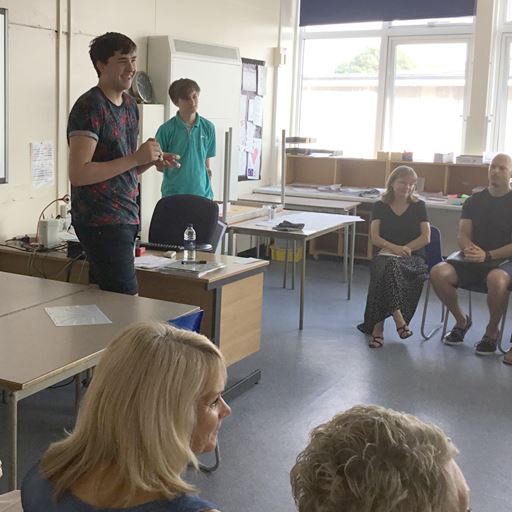Sixty peer mentors in years 9-12 who provide help and advice to fellow students attended workshops on anxiety. Topics included the issues teenagers face, mental health first aid, and when mentors should involve school staff and other professionals.
Jacqueline Beavis, Deputy Head Teacher at the school, said: “The training was absolutely amazing. The students were so buzzed about it. In fact, some of them delivered their own training session to the whole of our staff afterwards.”
The day was designed by a team of Essex students on our Doctorate in Clinical Psychology course, and included various discussion groups to encourage pupils to share their experiences.
Trainee clinical psychologist Matthew Slavin said: “The day was a helpful learning experience for us. We were struck by how insightful and reflective pupils were, and the ease with which they were able to find words to put to difficult emotions and experiences.
“We learned lots about what it's like to be a teenager, in terms of the different types of pressures they experience and how they support one another. We asked for feedback on how best psychologists can engage young people, and we were given advice to focus on the interests of young people when meeting them; to not focus on the problem straight away, and not to be directive.”
The workshops used creative exercises, such as drawing around one pupil then drawing on their silhouette how anxiety is experienced in the body. Videos were also used to normalise experiences of anxiety and as a basis for discussing the reasons behind people’s physiology and actions when anxious.
Dr Danny Taggart, Lecturer in our School of Health and Social Care, said: “The day offered our students the chance to speak to young people about mental health. An important part of their training beyond the university is listening to the experiences of people living with mental health problems, and those around them, so they get a real sense of what it’s like to live with these conditions.
“We also wanted to teach pupils how to be a peer mentor in a way that’s safe. They need to understand what they can and can’t do – and when professionals need to be involved.”





